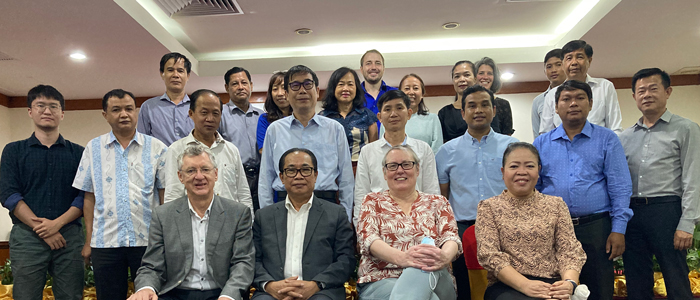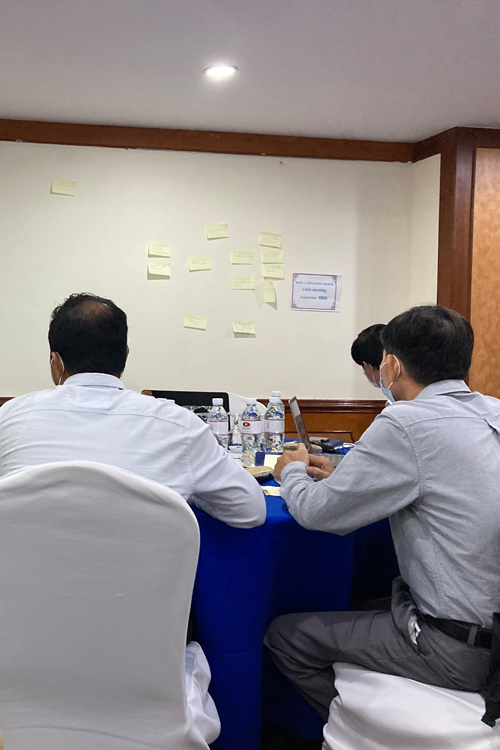What are the Challenges for our One Health partners?
Recent outbreaks of zoonoses, such as avian influenza and monkeypox, have highlighted the urgent need to develop One Health approaches. The Nossal Institute for Global Health has been leading the Collaboration on One Health Economic Research for Systems (COHERES) project to support this development in three Mekong countries.
After two years of remote collaboration, researchers from the Nossal Institute recently travelled to Phnom Penh, Cambodia to meet the Cambodian team and discuss progress with local partners.

Prof. Barbara McPake lead the delegation, which included Prof. Peter Annear, Ms. Katherine Gilbert, and Dr Justin McKinley. The Nossal Team hosted a three-day workshop with local partners from One Health sectors: animal health, human health, and the environment. The members of these sectors engaged with the Nossal team to validate findings that emerged from data analysis, provided local context to the data through conversation and workshop activities, and progressed the emerging findings to help translate them into meaningful policy dialogue in the near future.
During the workshop, participants discussed opportunities to apply One Health approaches to the transitioning animal health system. Demand for veterinary services is changing as smallholder subsistence farmers shift to market-oriented commercial and semi-commercial production. Supply is changing as more extensively trained veterinarians enter the workforce and compete with VAHWs. And governance is changing as market oversight is decentralized from the national government to the sub-national government.
Much of the discussion between participants focused on the difficulties faced by smallholder farmers and Village Animal Health Workers (VAHWs) regarding a lack of access to quality information and mixed incentives for reporting zoonotic disease outbreaks. By not reporting outbreaks, the lives and livelihoods of Cambodian smallholders face more significant threats from zoonoses, particularly avian influenza, as the disease can spread unabated through livestock and sometimes infect humans.
Village Animal Health Workers (VAHWs) regarding a lack of access to quality information and mixed incentives for reporting zoonotic disease outbreaks. By not reporting outbreaks, the lives and livelihoods of Cambodian smallholders face more significant threats from zoonoses, particularly avian influenza, as the disease can spread unabated through livestock and sometimes infect humans.
At the close of the workshop, the progression of the COHERES project became clearer. With project results validated by local partners, the team will continue to work to move data analysis results into meaningful policy in Cambodia. In the coming months, the project will engage the sub-national government in policy dialogue and produce policy briefs for government stakeholders.
Our understanding of the market for veterinary services has improved as a result of the trip. In particular, we have a more concrete understanding that the veterinary market is in transition on multiple fronts. By providing support during these transitions, we have an opportunity to introduce One Health principles and policies into the veterinary service market, to the benefit of animal, human, and environmental health.
Nossal will continue to work on the COHERES project to strengthen human health systems to the animal health sector. The Nossal team will return to Cambodia later this year to progress One Health policy dialogue among sub-national stakeholders.
The COHERES project is jointly funded and supported by the Australian Centre for International Agricultural Research (ACIAR) and the Department of Foreign Affairs and Trade (DFAT) Indo-Pacific Centre for Health Security
Dr Justin McKinley is a Research Fellow at the Nossal Institute for Global Health. He is an economist with a background in agricultural, development, and environmental economics